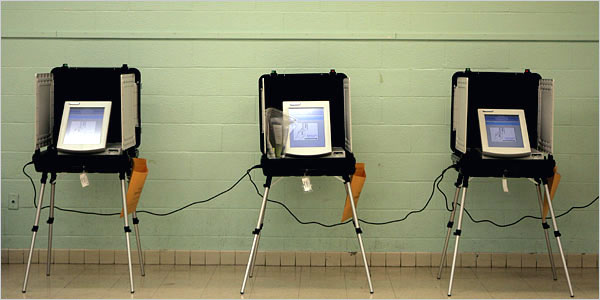There is a lot of political banter going on between the Republic and Democratic parties right now—with one side accusing the other of putting measures in place to rig the election, while the other group is suggesting its nominee is working with a foreign power to hack his opponent’s computer systems for the purpose of accessing sensitive, strategy-related information.

While the nominees are more concerned with making headline-grabbing statements, there is a serious concern to be had when you look at the combined accusations coming from both parties: that a computer systems hack could lead to the rigging of the upcoming presidential election.

Bruce Schneier, a security technologist and lecturer at the Kennedy School of Government at Harvard University, recently wrote an essay suggesting that the most vulnerable technology in this scenario is America’s electronic voting machines. Citing multiple resources, Schneier makes a reasonable case for why this modern-day method of casting ballots is not only insecure, but very much vulnerable to attack.
Schneier says that states have repeatedly ignored recommendations made by computer security experts, citing in favor of machine manufacturers who’ve continued to increase the presence of their technology during each election season. He argues there needs to be greater awareness of this threat now, and that cyber security teams should be dispatched to the manufacturers’ factories to test the machines out, measure the systems’ response to an attack, and develop solutions should a hack take place — with the worst case scenario being to have a measure ready in which the systems can be taken down should a hack occur.
Furthermore, he suggests a return to election systems that are more secure from the possibility of manipulation, including voting machines with voter-verified paper audit trails, and no internet voting. Yes, it’s a slower, less convenient process, but it better guarantees against an election being rigged.
Beyond an attack on voting machines, other ways in which hackers can influence election results includes deleting voter records, gaining access to a candidate or party’s website for the purpose of manipulating its message, or digitally intimidating campaign employees / donors with a form of ransomware.
Schneier points out that using cyberattacks like these to influence an election is nothing new, and in fact was most recently done in Latin America. He concludes his essay saying that federal officials must take the lead now to ensure a fair balloting process, before it’s too late, otherwise, the upcoming election and any others thereafter, will have no legitimacy.
To read Schneier’s full piece, head to the Washington Post.
Advertisement
Learn more about Electronic Products Magazine





